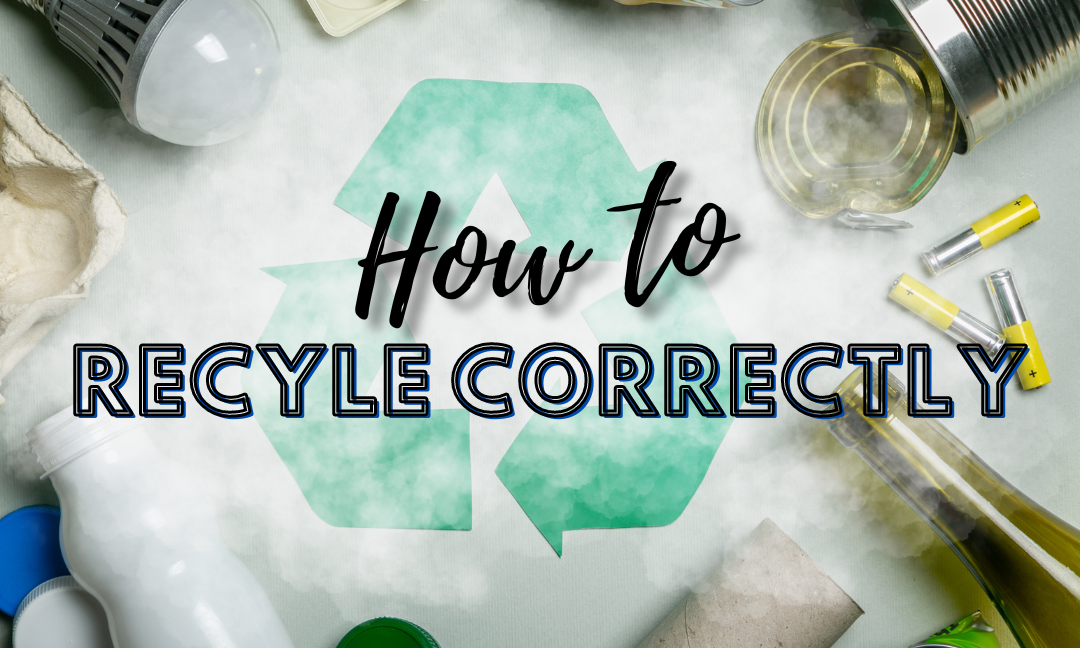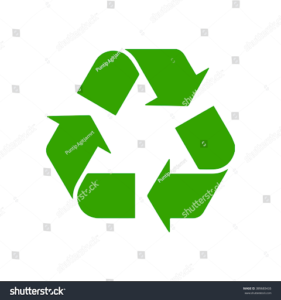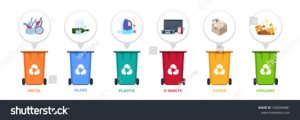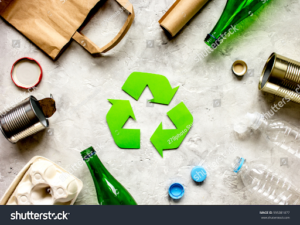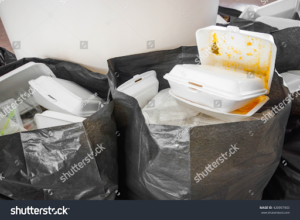How To Recycle Correctly
Written By: Deana Bjedi
Edited By: Kayla Mcmichael
Designed By: Linda Qi
Published By: Linda Qi
As we all know, recycling serves the environment with many great benefits, but only when done correctly. Canadians throw out around 3.3 million tonnes of plastic per year which means recycling more would reduce the amount of waste we produce. However, it is very important to recycle properly, because disposing of a non-recyclable item with recyclable items can contaminate an entire pile. As a result, the recyclable items would end up in a landfill. Therefore, it is important we understand how recycling works, in order to receive the benefits it provides.
How Does Recycling Work?
Once recycling is collected, it is brought to a recycling centre and sorted through by workers. This is where contaminated piles are discovered, separated and sent to a landfill with other garbage. An example of how a pile could become contaminated is if a bottle with juice left in it spills on other nearby recyclable items in the bin. In this case, all surrounding items
affected by the juice and the juice bottle itself would be no longer recyclable and sent to a landfill. The uncontaminated recyclable items go on to be bought by manufacturers. Manufacturers use these used materials to make new items, for example using used plastic water bottles to make new ones. Recycling allows us to reuse good materials multiple times and thus reduce the amount of waste that ends up polluting the Earth in landfills.
What To Recycle?
In order to recycle correctly, we must know what is actually recyclable. It is important that all recyclable items are clean and dry (no food or liquid should be left in any recycling). Also note that certain municipalities may have different recycling rules from others so double check the specific recycling rules in your municipality. Here’s a general list of things that are recyclable:
- Plastic bottles (with caps) and containers
- Empty tin, aluminum and steel cans (empty aerosol cans can be recycled if the plastic lid is removed)
- Paper (newspaper and magazines included (Soiled or wet paper should be composted))
- Flattened cardboard and paperboard
- Food and beverage containers (juice cartons, milk cartons)
- Glass bottles and containers
What Not To Recycle?
It’s also important to know what not to recycle. Firstly, any items that have leftover product, food or beverage in them should be cleaned and dried before disposal. Avoid bagging recyclable items as this also makes them ineligible to be recycled. Also note that you can still reuse non-recyclable items even though you cannot dispose of them in the recycling bin. This is highly encouraged as it reduces the
amount of garbage you dispose of. Nonetheless, here is a general list of non-recyclable items:
- Plastic bags
- Plastic wrap or film (this includes: plastic wrap, bubble wrap, sandwich bags and freezer bags)
- Flexible packaging (ex. chip bag, juice pouch, etc.)
- Cups with plastic or wax coating (plastic lids on these cups aren’t recyclable either)
- Polystyrene foam and plastic (ex. some takeout containers and cups)
- Dirty diapers
- Medical waste (ex. needles)
- Household items (ex. clothing which can be donated instead of thrown away)
- Garage waste (ex. car parts, scrap metals, etc.)
In conclusion, recycling is a very beneficial process for the environment. It helps to reduce the amount of waste in landfills and thus the amount of pollution. Hopefully, you now have a better understanding of how recycling works and how you can recycle effectively.
________________________
Works Cited
https://reviewmoose.ca/blog/recycling-statistics/
https://www.thegoodtrade.com/features/how-recycling-centers-work
https://quinterecycling.org/what-happens-to-my-recycling-after-its-collected/
https://www.wm.com/ca/en/recycle-right/recycling-101
Image Sources
https://www.shutterstock.com/image-vector/recycle-389683435
https://www.shutterstock.com/image-photo/waste-recycling-symbol-garbage-on-stone-595381877
https://www.shutterstock.com/image-photo/foam-food-containers-bin-takeaway-environmental-420997903

